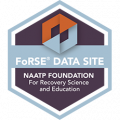Dual Diagnosis Treatment Program in Kokomo, Indiana
In a 2017 study, physicians diagnosed 42.1 million adults with a mental health disorder, but they found that 18.2% of this group also had a substance use disorder. In contrast, 20.3 million adults experienced substance use disorders, and 37.9% also developed mental health disorders. In total, 7.7 million adults were experiencing substance use and mental health disorders at the same time.
Table of Contents
ToggleWhat Is a Co-Occurring Disorder?
When physicians are helping patients with mental health disorders, they cannot neglect to treat this illness while treating their patients’ substance issues. A patient diagnosed with a mental health disorder and a substance use disorder at the same time is said to have a co-occurring disorder. This is also known as a dual diagnosis.
A person can have one or more mental health disorders and a substance use disorder at the same time. The medical community cannot necessarily tell which disorder presented itself first. Although one does not necessarily cause the other, studies have repeatedly shown that substance use and mental health disorders are linked. Most importantly, the existence of one can be the reason that the other gets worse.
Common Risk Factors
Mental health and substance use disorders have common risk factors that may cause both conditions. According to research, 40% to 60% of whether someone is susceptible to developing a mental health condition or a substance use disorder is attributable to the person’s genetics. Several genes are involved in the process, but they may also interact with environmental influences to cause these disorders. The vulnerability arises when several genes are interacting with each other and the environment. For example, some people with the gene variant are more likely to develop psychosis if they engage in marijuana use during their adolescent years.
Epigenetics
Epigenetics refers to how genes are regulated and expressed, but this isn’t dependent upon the gene sequence. This means that the genes are producing changes in the manner that the body’s cells read and act on genetic information. For example, drug exposure, trauma or chronic stress may cause stable changes in the way that genes express themselves. This alters how the neural circuits function and influence the person’s behavior.
The Existence of a Mental Health Disorder

Some mental health disorders have been determined to be risk factors for developing substance use issues. Many medical professionals believe that people begin to use substances when they are disturbed by the symptoms of a mental health disorder that hasn’t been diagnosed yet.
Changes that occur within the brain, when someone is experiencing a mental health disorder, may increase a person’s susceptibility to developing a substance use disorder. For example, mental illness may enhance the pleasurable effects that substances create. It may also decrease the person’s awareness of any negative consequences of the drug use. Lastly, it may reduce the prevalence of the symptoms of mental health disorders.
The Existence of a Substance Use Disorder
When a person has a mental health disorder, their brain’s functioning can be disrupted. These disruptions occur in the same brain areas that substances target. Therefore, the alterations in the structure and functioning of the brain can lead to a substance use disorder.
What Are the Symptoms of Mental Health Disorders?
Although every mental health disorder has its own symptoms, the following list of symptoms may be indicators that your loved one is experiencing one:
• Your loved one tried to commit suicide in the past or thought about doing so
• He often complains of several physical ailments that seem to exist for no reason
• She is acting recklessly
• He experiences paranoia, delusions, or hallucinations
• She isn’t paying attention to her personal hygiene
• He isn’t interacting with friends or family members
• She has a lack of, or even an increase in, sexual desire
• He is more irritable than usual
• She is unaware that these changes are occurring
• He can’t think clearly
• She is always terrified of unknown causes
• He experiences extreme highs and lows
• She no longer engages in activities that were important to her
• He isn’t eating or sleeping the same amount that he did in the past
What Are the Symptoms of a Substance Use Disorder?
Different substances can cause a range of symptoms, but the following general symptoms may indicate that someone has a substance use disorder:
• Taking longer amounts of time procuring a substance, using it, and recovering from the use
• Taking greater risks
• Ingesting a large amount of the substance and not appearing to be intoxicated
• Being late or frequently missing school or work
• Not spending time with family or friends and instead of spending it with friends you don’t know
• The inability to stop the substance use even after negative consequences result from the use
• The inability to perform at work, school, or home
• The inability to handle stress without using substances
• The inability to refrain from using substances
• Experiencing withdrawal symptoms after stopping use of the substance
Dual Diagnosis Treatment at First City Recovery Center

With integrated treatment, our trained medical staff will assess your loved one for a mental health and substance use disorder at the same time. The integrated treatment specialists tailor their treatment programs so that the patient can receive treatment for both conditions without becoming confused. Therefore, the messages they receive about their mental health and substance use disorders will be consistent and integrated.
Integrated treatment is superior to treating one condition and not the other. If a patient receives treatment for the mental health disorder, they will lose the incentive to use substances. Also, substance use exacerbates the symptoms caused by the mental health disorder. To experience the best results, your loved one’s mental health issues must be treated along with substance use throughout the entire treatment process.
An Example of a Dual Diagnosis Treatment Plan
In order to create an efficacious treatment plan, patients must determine what their goals will be. Of course, they want to maintain their sobriety over the long term and ensure that they can manage their mental health symptoms. The research discovered that behavioral therapies are effective in treating substance use and mental health disorders at the same time. Your loved one may also need medication in conjunction with these therapies.
The following therapies are examples of treatments:
- Contingency Management – Patients receive rewards for exhibiting positive behaviors.
- Dialectical Behavior Therapy – This therapy teaches patients to be aware of the present moment and what is currently going on. It also teaches them to be aware of their emotions and how they can regulate them. Lastly, they learn that it is important not to be self-destructive in order to have better relationships.
- Cognitive-Behavioral Therapy – Patients learn how to navigate difficult times by exploring their thoughts and beliefs.
- Assertive Community Treatment – This therapy combines community outreach with individual therapy.
- Motivational Interviewing – This therapy helps people increase their motivation to make positive changes throughout the treatment process.
- Therapeutic Communities – This is a type of therapy that inpatient treatment centers use to develop more positive behaviors, attitudes, and values.
- Mutual Support Groups – These are support groups that Alcoholics Anonymous, Narcotics Anonymous, and others hold on a regular basis.
Mental Health Disorders that We Treat at First City Recovery Center
At First City Recovery Center, we can offer your loved one treatment in our dual diagnosis program. We begin by screening your loved one for a mental health disorder and then evaluate your loved one’s substance use disorder. The treatment may include medication.
The mental health disorders we treat at First City Recovery Center include the following:
ADHD
Many people with ADHD turn to drugs to cope with their symptoms. Additionally, doctors often prescribe stimulants to treat the disorder, leading to a toxic substance abuse pattern.
Bipolar Disorder
About half of people diagnosed with bipolar disorder also deal with addiction. Again, a desire to self-medicate is the driving force here. Drugs and alcohol can take the “edge” off, providing temporary relief from seemingly insurmountable manic episodes.
Borderline Personality Disorder
Perhaps more than any other, borderline personality disorder drives many of its afflicted to substance abuse.
Depression
Likewise, people suffering from depression end up in a worsening self-medication cycle. A devastating crash always follows the temporary relief.
Generalized Anxiety Disorder
Generalized anxiety disorder affects a substantial percentage of the adult population. For the same reasons listed above, many end up turning to drugs or alcohol to cope.
Obsessive-Compulsive Disorder (OCD)
OCD causes unwanted intrusive thoughts and other obsessions, including irrational fears and the compulsion to complete certain rituals. It’s a multi-faceted disorder that can manifest in different ways.
Post-Traumatic Stress Disorder (PTSD)
After a severely traumatic event, a person can develop PTSD. This disorder impedes endorphin production and makes it difficult for someone to feel happy. According to the Department of Veteran Affairs, as many as 80 percent of suffering soldiers may abuse alcohol.
Our psychiatrists, counselors, and therapists will develop a treatment plan specifically for your loved one. If you are ready to get your loved one help for a substance use disorder, contact us at First City Recovery Center.

MD, Psychiatrist
Dr. Vahid Osman, MD is a psychiatry specialist in Indianapolis, IN.
Dr. Osman completed a residency at Austin State Hospital. He has over 32 years of experience in Psychiatry & Behavioral Health. He is board certified by the American Board of Psychiatry and Neurology.





